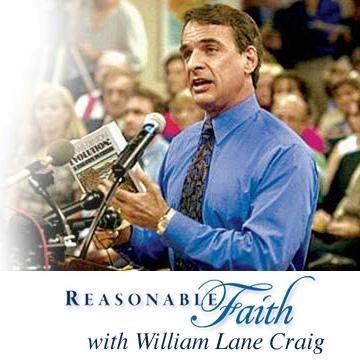Question of the Week #931: Simul Iustus et Peccator
Reasonable Faith Podcast
William Lane Craig
4.7 • 1.5K Ratings
🗓️ 20 March 2025
⏱️ 5 minutes
🧾️ Download transcript
Summary
Transcript
Click on a timestamp to play from that location
| 0:00.0 | Hello, Dr. Craig. I saw a video where you explain are being declared righteous in God's eyes as a legal notion and not something dependent on good |
| 0:22.6 | works or abstinence from sin. Yet it seems to me that in the New Testament, sin is treated |
| 0:28.4 | very seriously as something one ought to abstain from almost completely. I do not think I am |
| 0:34.1 | able to do so or even come close. How am I supposed to interpret these strict prescriptions when I know deep in my heart that I am a sinner |
| 0:42.4 | and will probably struggle with sin all my life, despite my felt connection with and love for God? |
| 0:49.3 | Thank you. Eric from Norway. |
| 0:51.8 | Until recently, the Lutheran Church was the state church in Norway, so presumably |
| 0:58.7 | you have some cultural acquaintance with Lutheran theology, Eric. Luther would have understood |
| 1:05.5 | exactly how you feel. One of his most important insights arising out of his doctrine of justification |
| 1:13.5 | as a legal declaration of God is that as a result of God's pronouncing us legally pardoned of our |
| 1:23.1 | sins, even as we struggle against our bent towards sinning, we are simultaneously righteous yet sinners. |
| 1:34.5 | Simul justus et peccator. |
| 1:38.1 | In contrast to medieval Roman Catholic theology, which thought of justification, as God's infusing into us, saving grace, |
| 1:49.3 | like some sort of antidote to sin, Luther correctly saw that Paul's teaching in the New Testament |
| 1:56.9 | is that justification is like a legal proclamation. When a convicted criminal is pardoned, |
| 2:06.5 | he is restored to right standing before the law. But he does not instantly become a virtuous, |
| 2:15.8 | upstanding person. We may hope that he embarks upon a program of moral |
| 2:21.1 | reform so that he gradually becomes a good person. In the same way, God pardons us of our sins, |
| 2:30.9 | while enabling us to avoid sin through the power of the Holy Spirit and to be |
| 2:37.3 | gradually conformed to the image of Christ. This latter process, which begins with regeneration, |
| 2:46.7 | or the new birth, is called sanctification. It is distinct from justification in that it is a moral |
| 2:58.4 | transformation that takes place in our lives over time. Justification and sanctification, |
... |
Transcript will be available on the free plan in -12 days. Upgrade to see the full transcript now.
Disclaimer: The podcast and artwork embedded on this page are from William Lane Craig, and are the property of its owner and not affiliated with or endorsed by Tapesearch.
Generated transcripts are the property of William Lane Craig and are distributed freely under the Fair Use doctrine. Transcripts generated by Tapesearch are not guaranteed to be accurate.
Copyright © Tapesearch 2025.

